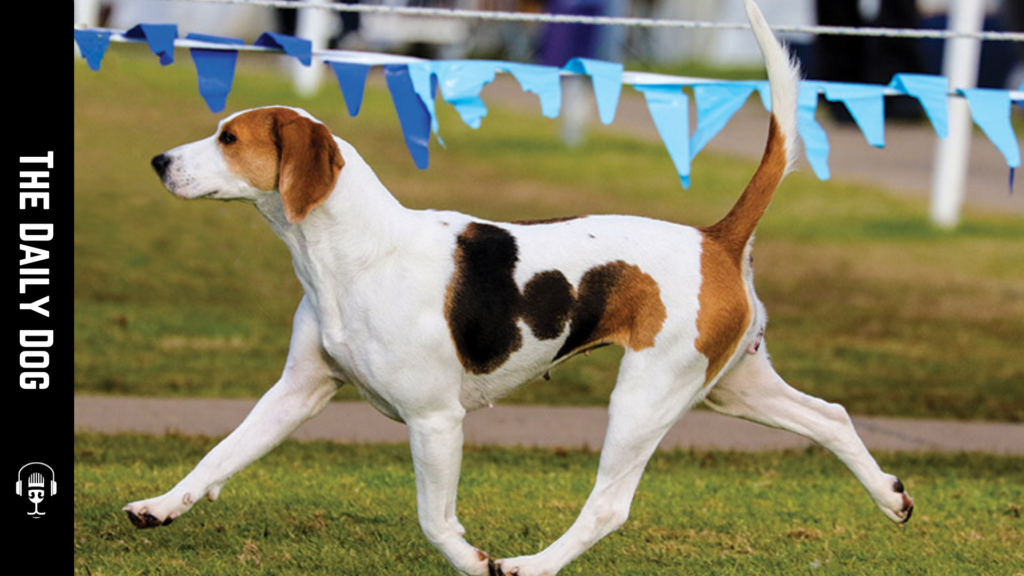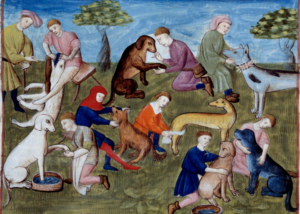When it comes to dog breeds that embody both charm and athleticism, the Harrier stands out as a unique and delightful option for dog lovers. With a rich history as a hunting dog, the Harrier combines a spirited demeanor with an affectionate nature. In this article, we will explore the characteristics, history, care requirements, and suitability of the Harrier as a family pet.
Understanding the Harrier: A Brief Overview
The Harrier is a medium-sized breed known for its keen sense of smell and stamina. Originally bred in England, these dogs were developed for hunting hares, which explains their name. Often mistaken for a Beagle due to their similar appearance, Harriers possess a more robust build and longer legs, making them excellent runners.
Physical Characteristics
Harriers typically weigh between 40 to 65 pounds and stand about 20 to 24 inches tall at the shoulder. Their short, dense coat comes in various colors, including tri-color (black, white, and tan), lemon, and red. Their ears are long and droopy, and their expressive eyes convey a friendly and intelligent demeanor.
Temperament and Personality
Harriers are known for their friendly and social personalities. They thrive on companionship and are generally good with children and other pets. Their playful nature makes them an excellent addition to active families. However, they can be independent thinkers, which means early training and socialization are crucial.
The Harrier’s History: Roots of a Hunter
The Harrier’s origins can be traced back to medieval England, where they were bred as scent hounds to assist hunters in tracking hares. They were often used in packs, showcasing their excellent teamwork and hunting skills. Over time, they became popular not just for hunting but also as family pets due to their pleasant disposition.
In the 20th century, the breed faced a decline in popularity, but dedicated enthusiasts worked hard to keep the Harrier’s legacy alive. Today, they are recognized by various kennel clubs, including the American Kennel Club, which acknowledges their unique characteristics and contributions to the canine world.
Care Requirements for Harriers
Caring for a Harrier involves understanding their specific needs. Here are some essential aspects of Harrier care:
Exercise Needs
As a hunting breed, Harriers require ample exercise to stay healthy and happy. Daily walks, runs, and playtime in a secure, fenced area are essential. They thrive in active households where they can participate in outdoor activities, such as hiking or running.
Nutrition
A balanced diet is crucial for the Harrier’s overall well-being. High-quality dog food, appropriate for their age, size, and activity level, should be provided. Always consult with a veterinarian to determine the best dietary plan for your Harrier.
Grooming
Harriers have a short coat that is relatively low-maintenance. Regular brushing helps reduce shedding and keeps their coat healthy. Additionally, routine dental care, nail trimming, and ear cleaning are essential components of grooming.
Training and Socialization
Early training and socialization are vital for Harriers. They are intelligent dogs but can exhibit stubbornness. Positive reinforcement techniques work best, and they respond well to consistency and patience. Socializing your Harrier with various people, environments, and other animals from a young age will help them develop into well-rounded adults.
The Harrier in Family Life
Compatibility with Children and Other Pets
One of the most appealing traits of the Harrier is their friendly nature. They are typically good with children and can form strong bonds with family members. Their playful demeanor makes them great companions for kids, though supervision is always recommended during playtime.
When it comes to other pets, Harriers can coexist peacefully with cats and other dogs, especially if raised together. However, their strong prey drive may lead them to chase smaller animals, so early socialization is key.
Living Arrangements
Harriers are adaptable dogs that can thrive in various living situations. Whether you live in a house with a large backyard or an apartment, as long as they receive sufficient exercise, they can adjust comfortably. However, they are not suited for a sedentary lifestyle and will need an active owner to keep them engaged.
Health Considerations for Harriers
Like all breeds, Harriers are predisposed to certain health issues. Being aware of these can help you provide better care for your furry friend:
Common Health Issues
- Hip Dysplasia: A genetic condition where the hip joint doesn’t fit snugly into the hip socket, leading to arthritis.
- Ear Infections: Due to their floppy ears, Harriers can be prone to ear infections, necessitating regular ear cleaning.
- Obesity: Given their love for food, monitoring their diet and exercise is crucial to prevent obesity-related issues.
Regular Veterinary Care
Routine veterinary check-ups are essential for maintaining your Harrier’s health. Regular vaccinations, dental care, and flea and tick prevention should be part of your routine care plan.
Engaging Activities for Harriers
To keep a Harrier mentally and physically stimulated, consider the following activities:
Agility Training
Harriers excel in agility courses, which challenge their speed and intelligence. This can also strengthen the bond between you and your dog while providing much-needed exercise.
Scent Work
Given their strong sense of smell, Harriers enjoy activities that involve tracking scents. You can set up scent games at home or participate in organized scent work classes.
Hiking and Outdoor Adventures
Taking your Harrier on hikes or long walks allows them to explore new environments, which is mentally stimulating and physically rewarding.
Conclusion: Is the Harrier Right for You?
The Harrier is a lovable, energetic breed that can bring joy and companionship into your home. Their friendly disposition, coupled with their athletic nature, makes them an excellent choice for active families or individuals who enjoy the outdoors. However, they require commitment in terms of exercise, training, and socialization.
If you’re considering adding a Harrier to your family, ensure you can meet their needs for companionship, exercise, and mental stimulation. With proper care and attention, a Harrier can be a delightful and loyal companion for many years.
In summary, the Harrier is more than just a hunting dog; they are charming companions that can fit perfectly into an active lifestyle. Embrace the love and joy that a Harrier can bring into your life, and you’ll find yourself rewarded with a loyal friend who thrives on adventure and companionship. Whether you’re hiking through nature or enjoying a sunny day in the park, a Harrier will always be eager to join you on your next escapade.










